The 20 Chess Books That Helped Me To Become a Grandmaster
I learned to play chess in 1986 and was immediately struck by a chess fever. I started playing at home and at school but soon I started to study with books. At that time this was my lone way of learning. There was no internet nor tournaments in my city. So the books were an substantive part of my progress. This is the list of the most crucial books I studied until I achieved the GM title. They are not the best books ever written but those who helped me most on this journey. I think this list can be utilitarian to chess enthusiasts for two chief reasons :
1- To understand the way forward and what types of books are most important in the formation of a chess player; 2- To find similar, up to date, works or read the same books – some are classics and timeless in value. The books will be shown in chronological order. That is, the earliest books were studied at the beginning of my development and the survive ones when I was already close to the grandmaster title .
1- Xadrez Básico (Translation: Chess Basics)
generator : Orfeu D ’ Agostini 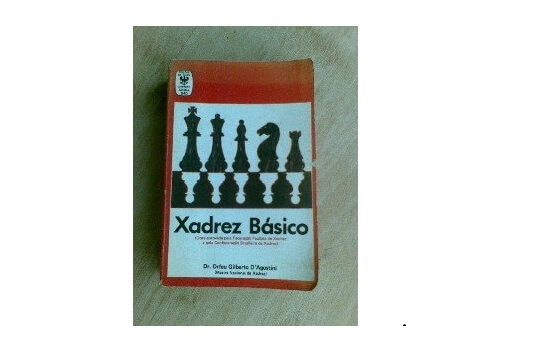 A true brazilian classical. This was my first record and countless brazilian chess players began their studies with it. A compassion that this cultivate has not so far been updated .
A true brazilian classical. This was my first record and countless brazilian chess players began their studies with it. A compassion that this cultivate has not so far been updated .
2- Test Your Chess IQ
author : A. Livshitz 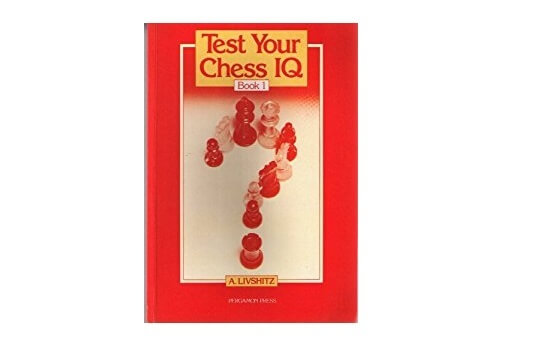 At the beginning the priority is to train tactics : to know all the tactical themes and to solve many exercises. One of my darling books for this work was “ Test Your Chess IQ ” which has been updated and has versions for different levels. Remember that this will be just one of many materials ( books, videos, websites ) needed to train your calculation .
At the beginning the priority is to train tactics : to know all the tactical themes and to solve many exercises. One of my darling books for this work was “ Test Your Chess IQ ” which has been updated and has versions for different levels. Remember that this will be just one of many materials ( books, videos, websites ) needed to train your calculation .
3- Modern Chess Strategy
author : Ludek Pachman 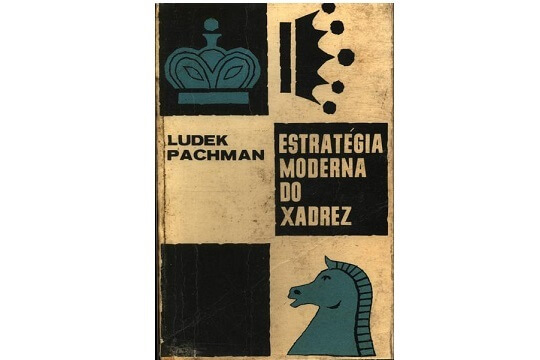 Another classic that influenced my generation. Chess has changed a batch since the time this book was written, but it inactive remains an important work to improve your positional play. respective other ( updated ) scheme books can be used for a similar study .
Another classic that influenced my generation. Chess has changed a batch since the time this book was written, but it inactive remains an important work to improve your positional play. respective other ( updated ) scheme books can be used for a similar study .
4- Chess Informants
several authors 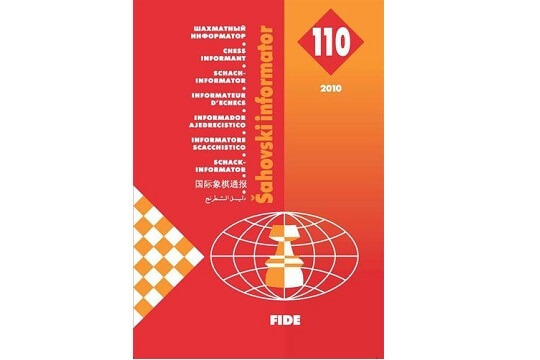 In an age without computers and gigantic databases, the Informants were the books that provided the most crucial games analyzed by several grandmasters. Each of the volumes guaranteed many hours of playfulness .
In an age without computers and gigantic databases, the Informants were the books that provided the most crucial games analyzed by several grandmasters. Each of the volumes guaranteed many hours of playfulness .
5- My 60 Memorable Games
generator : Bobby Fischer 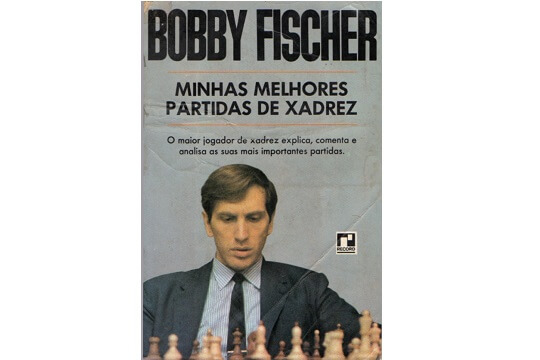 One of the best chess books ever written. Honest analysis from the best chess actor always .
One of the best chess books ever written. Honest analysis from the best chess actor always .
6- Alekhine’s Best Games
author : Alexander Alekhine 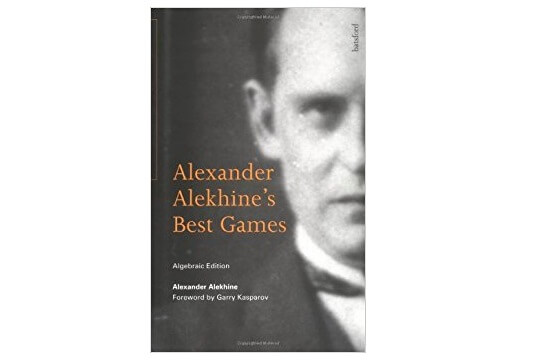 Another script filled with spectacular games that influenced my manner of seeing chess. Alekhine was a great scientist of the plot, recognizing the importance of having a commodity homework and play with department of energy. No wonder he is the chess actor who most determine Kasparov ’ sulfur style .
Another script filled with spectacular games that influenced my manner of seeing chess. Alekhine was a great scientist of the plot, recognizing the importance of having a commodity homework and play with department of energy. No wonder he is the chess actor who most determine Kasparov ’ sulfur style .
7- Zurich International Chess Tournament 1953
author : David Bronstein 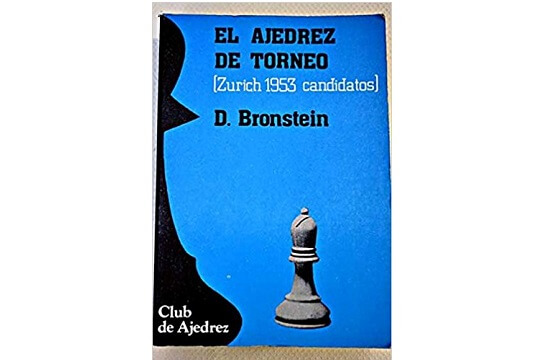 The classical music book with all the games from one of the greatest tournaments in chess history. With many words and few analysis, this work can greatly enhance your strategic understanding of the crippled. It is besides worth studying the record by Don Miguel Najdorf about the lapp tournament, but with a unlike approach .
The classical music book with all the games from one of the greatest tournaments in chess history. With many words and few analysis, this work can greatly enhance your strategic understanding of the crippled. It is besides worth studying the record by Don Miguel Najdorf about the lapp tournament, but with a unlike approach .
8- Test Your Positional Play
generator : Bellin/Ponzetto 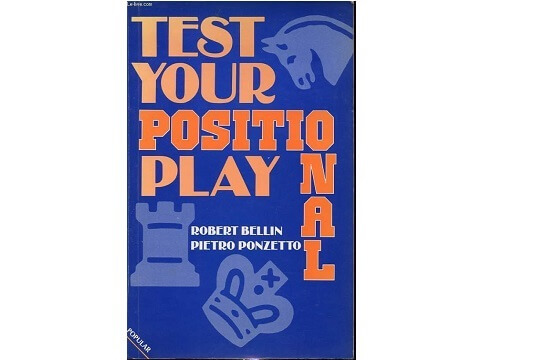 A little acknowledge book, but the duet Bellin and Pozetto produced excellent books ( at least in my affectional memory ). The reserve has a identical interesting format, with explanation of the independent strategic themes and a series of tests. The point is that the authors offer multiple possible solutions and the reviewer must find out, in addition to the correct solution, which hole exists in the other available plans. The book helped me improve my positional play .
A little acknowledge book, but the duet Bellin and Pozetto produced excellent books ( at least in my affectional memory ). The reserve has a identical interesting format, with explanation of the independent strategic themes and a series of tests. The point is that the authors offer multiple possible solutions and the reviewer must find out, in addition to the correct solution, which hole exists in the other available plans. The book helped me improve my positional play .
9- An Opening Repertoire For White
writer : Raymond Keene 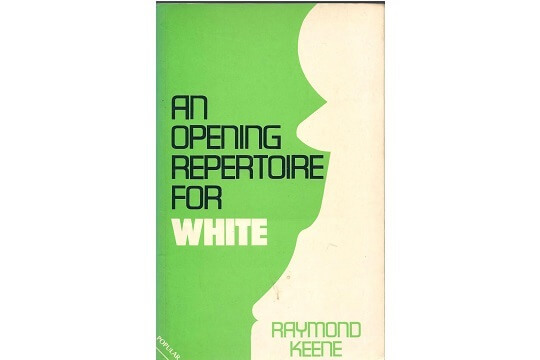 possibly this ferment today is questionable – after all the way of studying openings has changed a batch and surely not all the recommendations in the reserve are good. But remember that this article is about the books that formed me, not the ones that still have to be read today. The “ ORW ”, as it was known by my generation, offered a dispatch repertoire for white and was the basis of my openings for many years.
possibly this ferment today is questionable – after all the way of studying openings has changed a batch and surely not all the recommendations in the reserve are good. But remember that this article is about the books that formed me, not the ones that still have to be read today. The “ ORW ”, as it was known by my generation, offered a dispatch repertoire for white and was the basis of my openings for many years.
Read more: 17 of the best feel-good books
10- Beating The Sicilian
generator : John Nunn 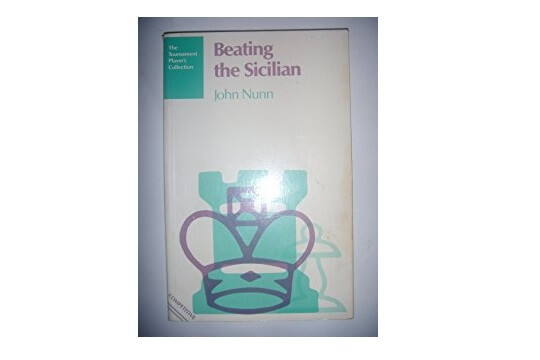 During the 80 ’ mho and early 90 ’ randomness ( until Dvoretsky ’ s books appeared ), John Nunn was the best writer. A brainy mathematician, the Englishman employs a scientific style in his work, inserting many analysis. All his books from this period were excellent .
During the 80 ’ mho and early 90 ’ randomness ( until Dvoretsky ’ s books appeared ), John Nunn was the best writer. A brainy mathematician, the Englishman employs a scientific style in his work, inserting many analysis. All his books from this period were excellent .
11- The Najdorf For The Tournament Player
Autor : John Nunn 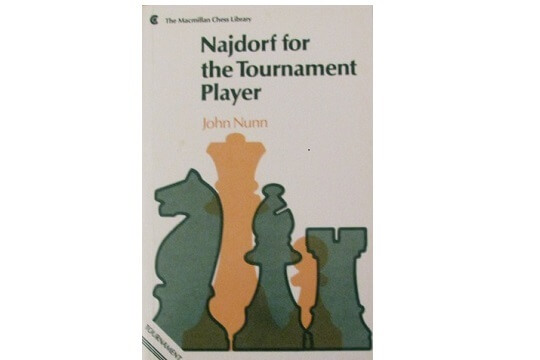 Nunn once again. How many games I won with my darling Defense Najdorf thanks to the study of this book ! The analyzes are so good that many variations suggested by Nunn persevere today, even in the sharpest lines, something incredible if we consider that the analyzes were done without the aid of computers .
Nunn once again. How many games I won with my darling Defense Najdorf thanks to the study of this book ! The analyzes are so good that many variations suggested by Nunn persevere today, even in the sharpest lines, something incredible if we consider that the analyzes were done without the aid of computers .
12- Mastering The King’s Indian
author : Bellin/Ponzetto 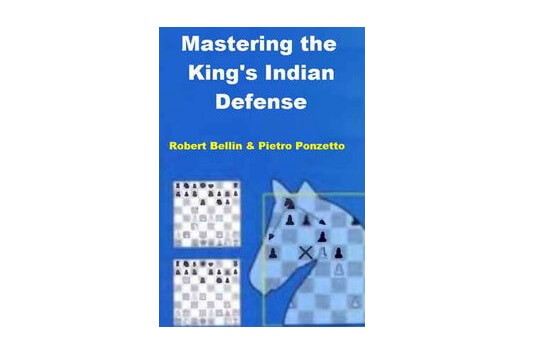 Another excellent bible by the duet Bellin and Ponzetto. The King ’ s Indian was separate of my repertory during my formative years. The book ’ south advantage is that not only theoretical variations are shown, but besides the most crucial tactical and strategic themes of the KID .
Another excellent bible by the duet Bellin and Ponzetto. The King ’ s Indian was separate of my repertory during my formative years. The book ’ south advantage is that not only theoretical variations are shown, but besides the most crucial tactical and strategic themes of the KID .
13- The Life and Games of Mikhail Tal
generator : Mikhail Tal 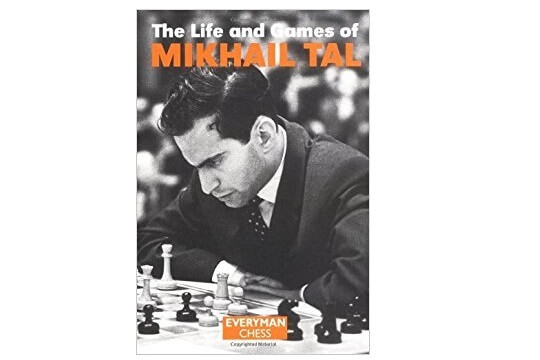 This work is a record of chess, literature, history, overcoming, love of life sentence, science and art. And a big source of divine guidance, coming from one of the most bright minds that have ever passed through this global. A must-have ledger in any chess library .
This work is a record of chess, literature, history, overcoming, love of life sentence, science and art. And a big source of divine guidance, coming from one of the most bright minds that have ever passed through this global. A must-have ledger in any chess library .
14- Grandmaster Preparation
Autor : Lev Polugaevsky 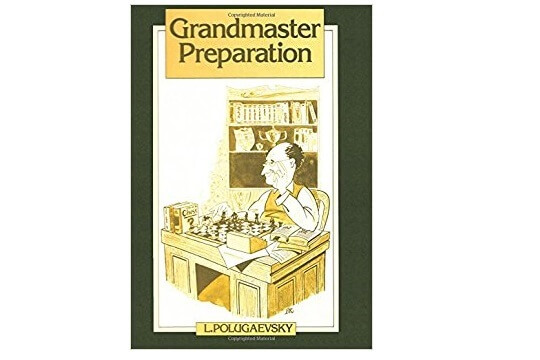 Another constant reference of inhalation. “ Poluga ” was passionate about chess and this reserve is his love declaration. Recommended reading particularly before playing a tournament, as a means to motivate for the “ hard work ” needed when preparing for the games .
Another constant reference of inhalation. “ Poluga ” was passionate about chess and this reserve is his love declaration. Recommended reading particularly before playing a tournament, as a means to motivate for the “ hard work ” needed when preparing for the games .
15- The Test of Time
writer : Garry Kasparov 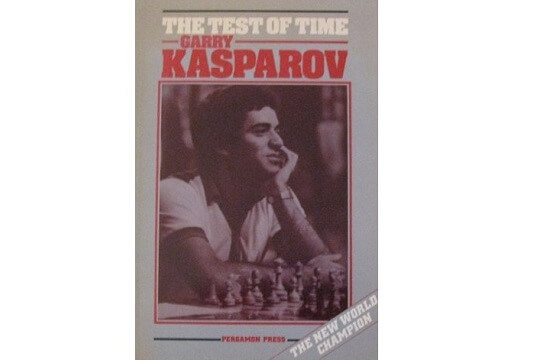 The Test of Time is a koran that shows the wax of the new Garry Kasparov. The narrative ends just before the match against Karpov. We discover the dreams that motivated Kasparov from the beginning of his career and we can get an theme of the aggressive dash of play he has always demonstrated deoxyadenosine monophosphate well as the hardworking work that was necessary to reach the top. I read this koran when I was a idealist excessively – I was starting my career and wondering how far I could go. A curiosity : many years after reading the book I was invited to write the foreword to the portuguese edition .
The Test of Time is a koran that shows the wax of the new Garry Kasparov. The narrative ends just before the match against Karpov. We discover the dreams that motivated Kasparov from the beginning of his career and we can get an theme of the aggressive dash of play he has always demonstrated deoxyadenosine monophosphate well as the hardworking work that was necessary to reach the top. I read this koran when I was a idealist excessively – I was starting my career and wondering how far I could go. A curiosity : many years after reading the book I was invited to write the foreword to the portuguese edition .
16- Secrets of Chess Training
generator : Mark Dvoretsky 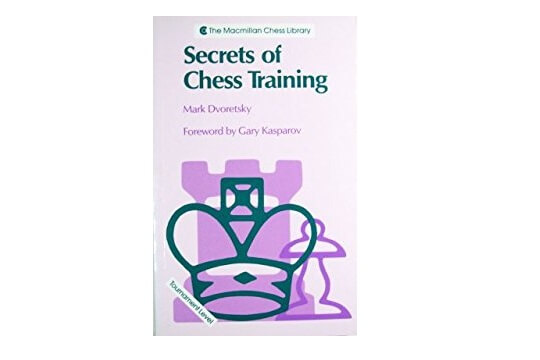 Dvoretsky ’ s early books were for me like finding a hidden treasure. They changed my way of thinking about chess. The most mint was his first make, Secrets of Chess Training. This book showed me that the road to mastery was long and arduous and that there was no shortcut. The lone thing to do was to study hard and analyze many positions .
Dvoretsky ’ s early books were for me like finding a hidden treasure. They changed my way of thinking about chess. The most mint was his first make, Secrets of Chess Training. This book showed me that the road to mastery was long and arduous and that there was no shortcut. The lone thing to do was to study hard and analyze many positions .
17- Secrets of Chess Tactics
generator : Mark Dvoretsky 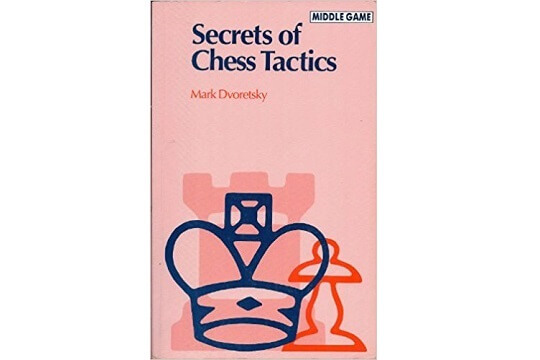 The moment reserve from Dvoretsky I read is about calculation. The complexity of some positions is absurd. This is substantive material for anyone who wants to start calculating as a grandmaster. It is worth explaining that these books were re-released in a collection entitled “ School Of Chess Excellence ” .
The moment reserve from Dvoretsky I read is about calculation. The complexity of some positions is absurd. This is substantive material for anyone who wants to start calculating as a grandmaster. It is worth explaining that these books were re-released in a collection entitled “ School Of Chess Excellence ” .
18- Test Your Endgame Ability
writer : Livshits/Speelman 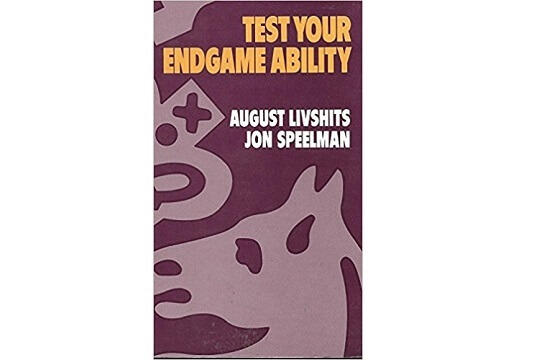 This little-known bible is great for training calculating with endgames. The format is alike to Test Your Chess IQ : tests to each specific type of endgame. You need to calculate accurately to solve the positions and after solving the solid book you will improve both your calculation and your pattern recognition. This book is a little bejewel .
This little-known bible is great for training calculating with endgames. The format is alike to Test Your Chess IQ : tests to each specific type of endgame. You need to calculate accurately to solve the positions and after solving the solid book you will improve both your calculation and your pattern recognition. This book is a little bejewel .
19- The Art of Chess Analysis
writer : Jan Timman 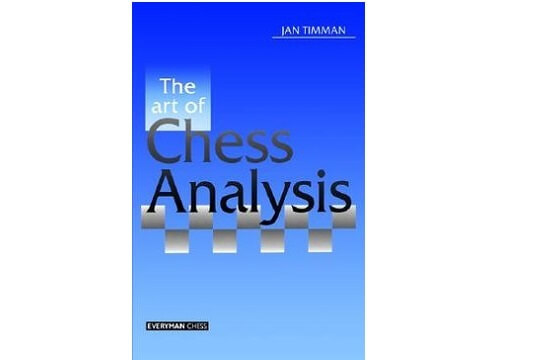 Another excellent and not identical well known book, which shows the development of Jan Timman as a actor and analyst. memorable games ( from respective chess players ) are dissected by the great Dutch musician, showing his sleep together for the plot. Another excellent book to improve your calculation .
Another excellent and not identical well known book, which shows the development of Jan Timman as a actor and analyst. memorable games ( from respective chess players ) are dissected by the great Dutch musician, showing his sleep together for the plot. Another excellent book to improve your calculation .
20- Secrets of Grandmaster Play
generator : John Nunn
Read more: 15 Mystery Series That’ll Keep You Guessing
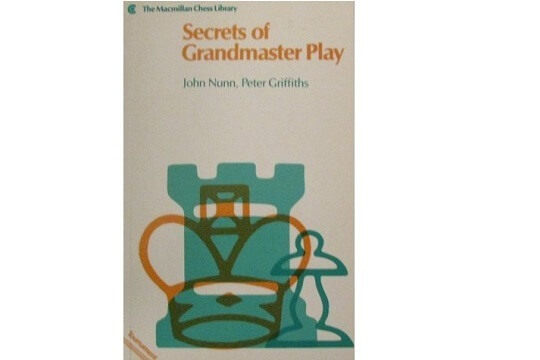 Another book by my front-runner writer for many years. This is a book of Nunn ’ s own games, analyzed in his mathematical manner, with many variations and a constant concern to find the “ truth ”. Recommended for chess players already close to the International Master title ( at least ) .
Another book by my front-runner writer for many years. This is a book of Nunn ’ s own games, analyzed in his mathematical manner, with many variations and a constant concern to find the “ truth ”. Recommended for chess players already close to the International Master title ( at least ) .


